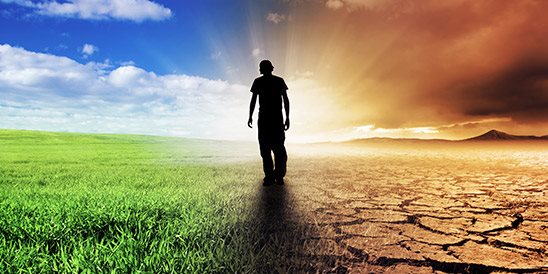#EcoAnxiety #Ecological #Grief
“Ecological grief refers to the sadness people experience due to losing parts of their natural environment and way of life due to climate change”–Paul Ebeling
For decades, environmental experts have warned about the harms climate change might cause to the planet. In more recent history, people have started to feel the consequences the experts have been warning about — including more extreme wildfires and other weather events, deforestation, food shortages, species extinctions, and more, which affect people, their homes, and their way of living.
Climate change has become “a lived experience for more and more people,” wrote the authors of a perspective article published in Y 2021 in the International Journal of Environmental Research and Public Health. This shift has kindled feelings of loss or mourning that can closely resemble other forms of bereavement.
The authors of the perspective article define “ecological grief” as mourning of the loss of ecosystems, landscapes, species, and ways of life due to climate change.
Some people are more affected than others. “Many indigenous peoples experience much more ecological grief because of physical, cultural, and social losses, which arise from a changing environment,” says Panu Pihkala, PhD, an adjunct professor of environmental theology at the University of Helsinki in Finland.
Ecological grief is a relatively new term for a form of climate-related loss and mourning that researchers are just beginning to study. However, some research has already attempted to map out this term and its related causes and psychological experiences.
Grief is sometimes defined as a natural human response to loss. All of the physical and emotional experiences a person has following and related to a loss are grief. A closely related term is “mourning,” the period following a loss when a person tries to adjust and accept their new reality, according to Mental Health America (MHA). Mourning is the process of accepting the loss; grief refers to the outward expression of one’s feelings in response to that loss, per MHA.
The Big Q: What’s the Difference Between Ecological Grief and Eco-Anxiety?
The Big A: A report published in 2017 by the American Psychological Association defined eco-anxiety as a chronic fear of environmental doom. In a scoping review published in 2021 in The Journal of Climate Change Health, it was defined as “mental distress or anxiety associated with worsening environmental conditions or anxiety experienced in response to the ecological crisis.”
In some of his work, Pihkala explains that ecological grief can be a cause of anxiety. The two can also be considered separate emotional states or experiences. “The links between grief and anxiety are profound,” he says.
If you’re trying to differentiate eco-anxiety from ecological grief, some of Pihkala’s research states that eco-anxiety mainly involves feelings of forward-looking fear and worry, whereas grief mainly involves emotions such as sadness and is usually in response to a loss that has already happened or started to happen.
Coping With Ecological Grief
Neither “ecological grief” nor “eco-anxiety” is considered a diagnosable mental health condition. But they can significantly affect well-being and day-to-day functioning in ways that may contribute to a general mood disorder such as depression or anxiety, researchers have suggested.
There is some early work on “ecotherapies,” or therapeutic methods designed and proven to address these experiences. But they’re not necessarily part of standard mental health care just yet.
If you feel affected by ecological grief, there are steps you can take to cope with what you’re feeling and experiencing, Pihkala says. Some include:
- Connect with others who are going through the same thing. Online groups or meetups, sometimes called “climate cafes,” can be helpful. “Given that many people feel lonely, isolated, or ashamed within their ecological grief and anxiety, the well-known benefits of peer interactions and interpersonal group therapy could be drawn upon,” write the authors of a study published in The Lancet Planetary Health in 2020. The Climate Psychology Alliance also offers some helpful resources.
- Take action in ways that are available to you. For both eco-anxiety and ecological grief, lending your energy and support to organizations that combat climate change can be empowering and therapeutic. “Many people find it helpful to take action — to be a part of the change that needs to happen,” says Liza Jachens, PhD, a psychologist and lecturer at Webster University in Geneva, Switzerland. Spending time in nature may also be helpful, she says.
- If you’re seeking professional help, look for a “climate aware” mental health provider. There is a growing specialty of therapists and counselors who have specific training in addressing climate-related concerns or emotions. They sometimes use the term “climate aware,” Pihkala says. The Climate Psychology Alliance also offers resources to help you find mental health care providers with this type of expertise.
Have a happy weekend, Keep the Faith!









